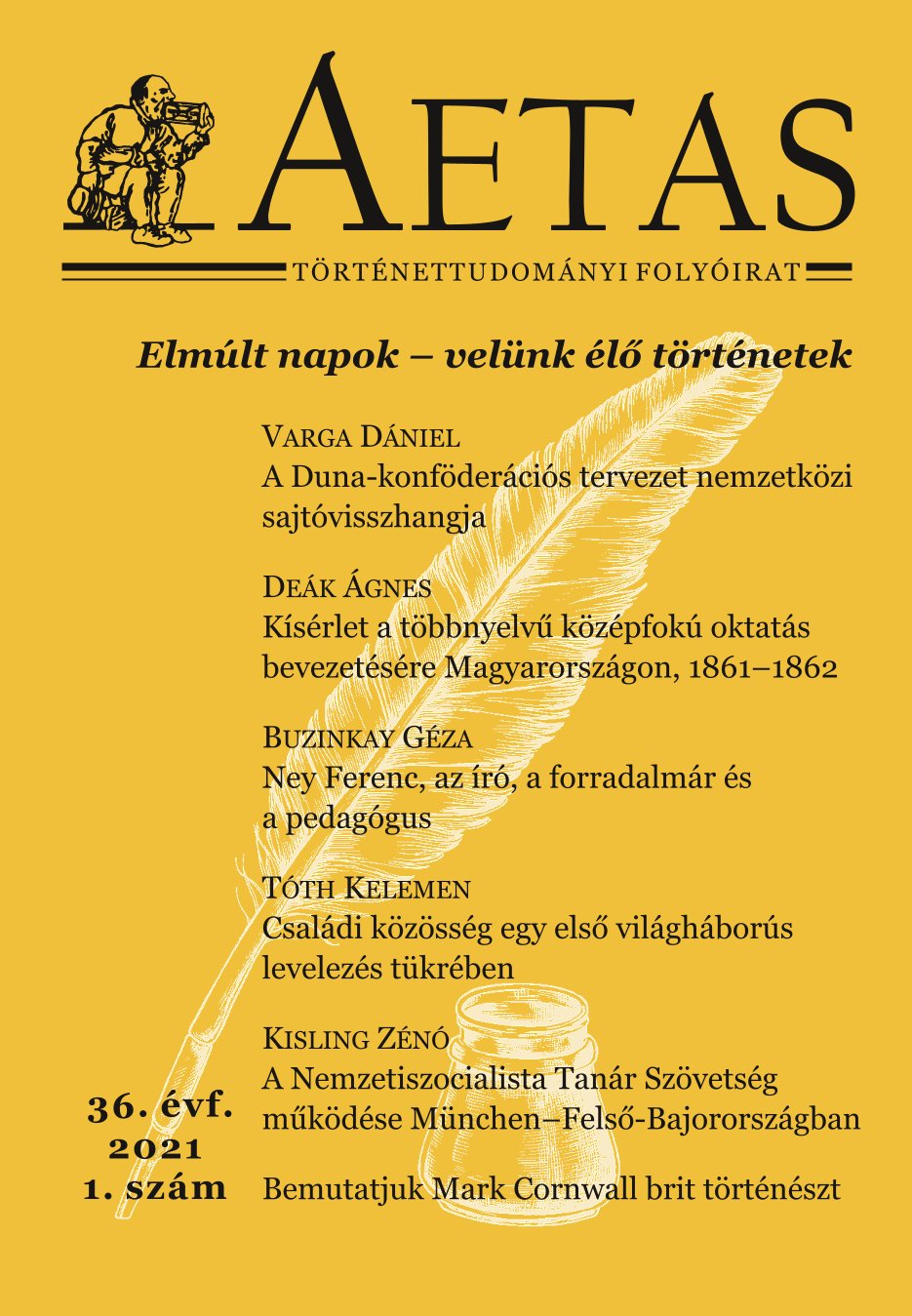„Csak írjanak máskor is”. A családi közösség egy első világháborús levelezés tükrében
„Just write to me again” – Family community through a World War I correspondence
Author(s): Kelemen TóthSubject(s): Local History / Microhistory, Pre-WW I & WW I (1900 -1919)
Published by: AETAS Könyv- és Lapkiadó Egyesület
Keywords: World War I; soldier’s letters; family life and behaviour
Summary/Abstract: During the late hours of June 20th, 1916, in the little Volhynian village of Hruzyatyn, the 31st infantry regiment of the Royal Hungarian Honvéd successfully held back the attacking Russian troops in the fights after Brusilov’s breakthrough. Meanwhile, in Komárom County, Hungary, István Horváth, the notary for Gyermely, did not yet know that he had lost his second son, Endre Horváth. He fell there at Hruzyatyn. Endre kept a regular correspondence with his family, so as his brothers. Many of these letters were kept throughout the generations in an aging, brown suitcase, keeping the minds and sentiments of a family who lived through a century fraught with danger. This study looks to answer the following question: What can we learn from these correspondences from 1903 to 1921 about family life and behaviour, as well the impacts of war on the smallest unit of society, the family? After Péter Hanák’s study, Népi levelek az első világháborúból (Folk letters from World War I), World War I soldier’s letters were subjects of several historical analyses. Studies were written that used soldiers’ letters to identify traces of folk literature, to better visualize the everyday world of war, and to examine how a world changed by war impacted linguistic stereotypes. Through the literature of correspondence and war correspondence, first world war soldiers’ letters can be immensely helpful sources to understand the affairs of a family from this time period. Private letters can bring new perspectives for the present interested in the past. From written private correspondence we can learn the emotions, thoughts, the inscape, the worldview, and overall, the unique micro world of the person from the past. Letters that were written during wartime have outstanding value, because their writers were in a strange and abnormal life situation. Thus, we can experience the emotions of individuals in a more direct and open form, as far as the censorship (or the elusion of that) allows it.
Journal: AETAS - Történettudományi folyóirat
- Issue Year: 2021
- Issue No: 1
- Page Range: 72-93
- Page Count: 22
- Language: Hungarian

